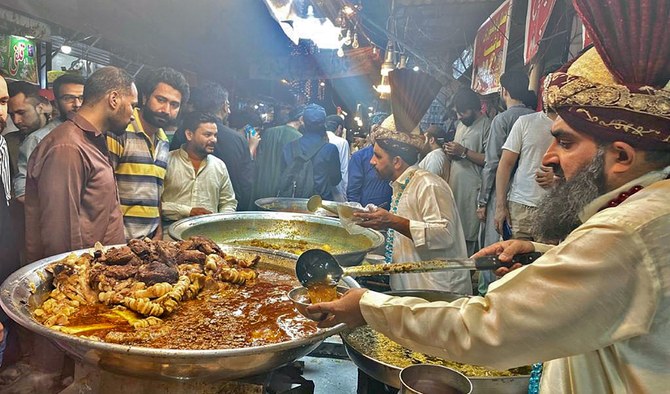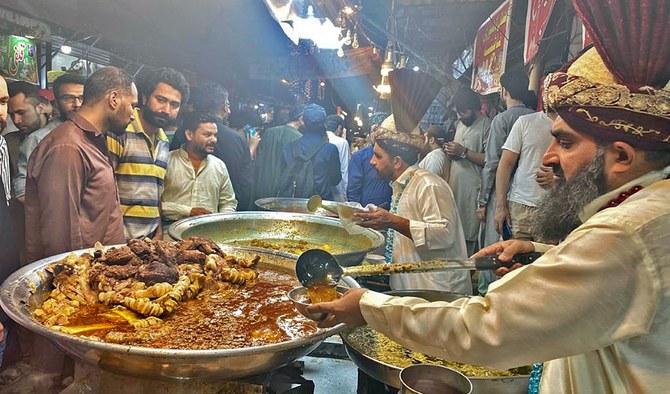RAWALPINDI: After two years of pandemic lull, the sights of Pakistani delicacies, as well as crowds, have returned to Kartarpura street, the most favorite area for the residents of Islamabad to have their predawn sahoor meal during Ramadan.
In the 19th century, Kartarpura street was part of the Sikh neighborhood of Rawalpindi, the Pakistani capital’s twin city, and its main commercial area. But for the past few decades it has been known as “sahoor food street,” famous for treats such as tender beef or mutton meat with bone marrow, known as nihari, and siri paya, a traditional breakfast dish of cow or goat head and trotters cooked overnight.
Deserted during the Muslim fasting month for two consecutive years, when coronavirus restrictions forced businesses to offer only takeaway food, the street is now again bustling with food stalls and teeming with people waiting in long queues for their turn.
As Muslims are getting ready to celebrate Eid Al-Fitr, the end of the fasting month, vendors are clad in traditional festive clothing, and serving their specials.
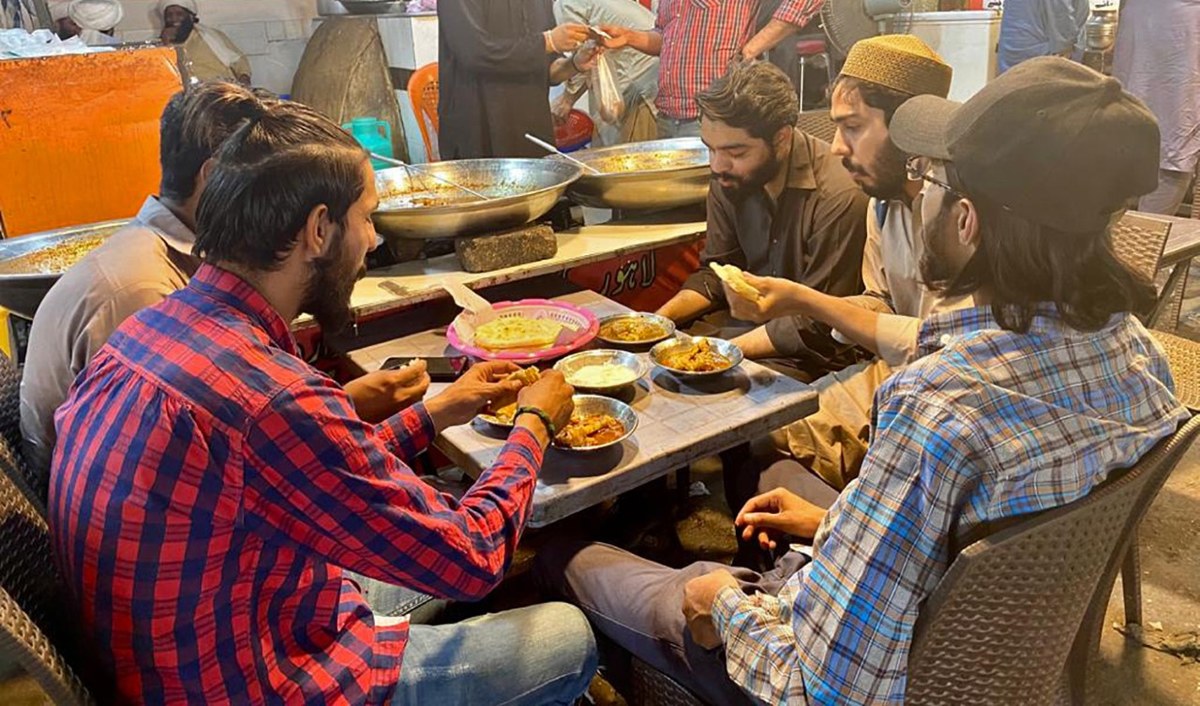
Pakistanis have their predawn meal during Ramadan at Kartarpura street in Rawalpindi on April 27, 2022. (AN Photo)
“This Ramadan we prepared more food everyday but all sold out even before the end of sahoor time,” Akbar Ali, who arrived from Lahore to sell nihari in Kartarpura street, told Arab News.
“This year our business has increased more than three times.”
Visitors are coming not only from Rawalpindi and Islamabad, but also from other nearby cities.
Abdul Rauf, who sells pathora, or fluffy deep-fried leavened sourdough bread, said his profits in Kartarpura street are a few times more than at his stall in another part of Rawalpindi.

Food vendors sell traditional treats at Kartarpura street in Rawalpindi, Pakistan on April 27, 2022. (AN Photo)
“I am selling pathora to around 500 people daily this year, which is more than double than last two years,” he said. “I have a stall in Saddar, Rawalpindi but earned here in one day what used to earn there in a week during normal days.”
Vendors say the real feel of Kartarpura street has returned this Ramadan.
Shehbaz Ahmed, a photographer from Azad Kashmir, who sells lassi, a traditional buttermilk drink, has observed that more people are coming to area than before the pandemic.
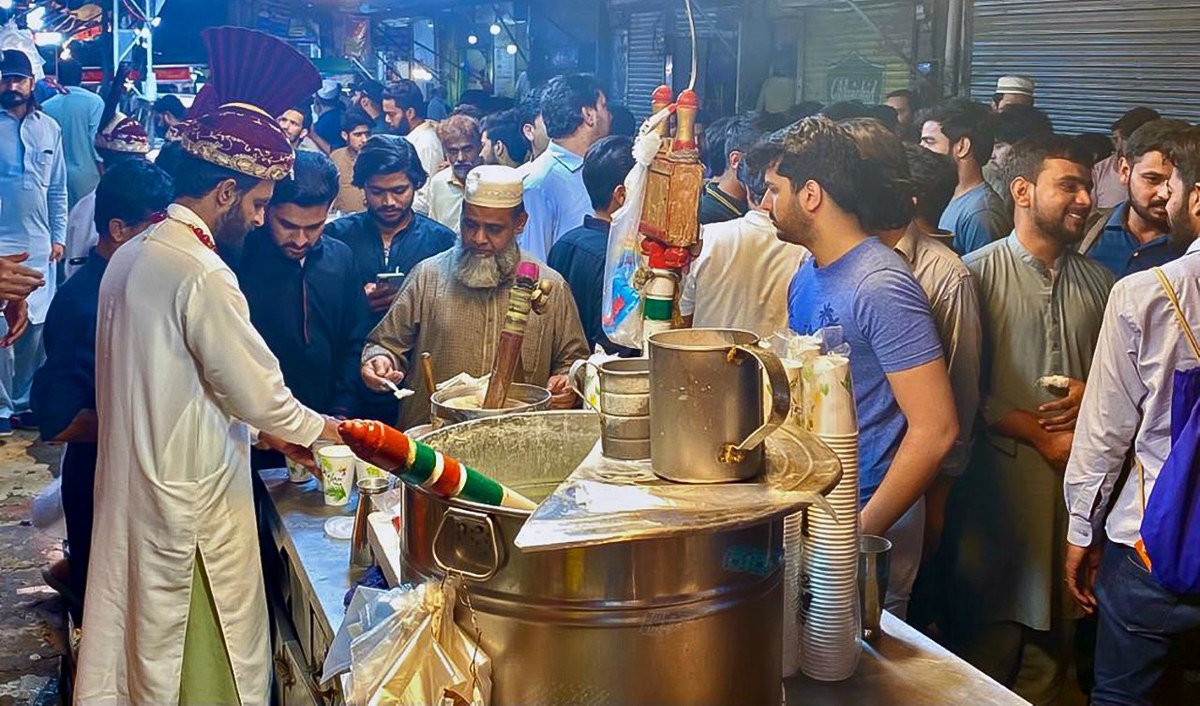
People throng stalls in Kartapura street, an area famous for sahoor food, in Rawalpindi, Pakistan on April 27, 2022. (AN Photo)
“The whole street remains full of people daily, from 12 a.m. till the end of sahoor time,” he said.
Customers, too, are happy to be back.
Saima Ahmed, whose family comes to the historic food street every year, said it felt good to see all the festivity and life return to normal.
“We missed it,” she told Arab News.
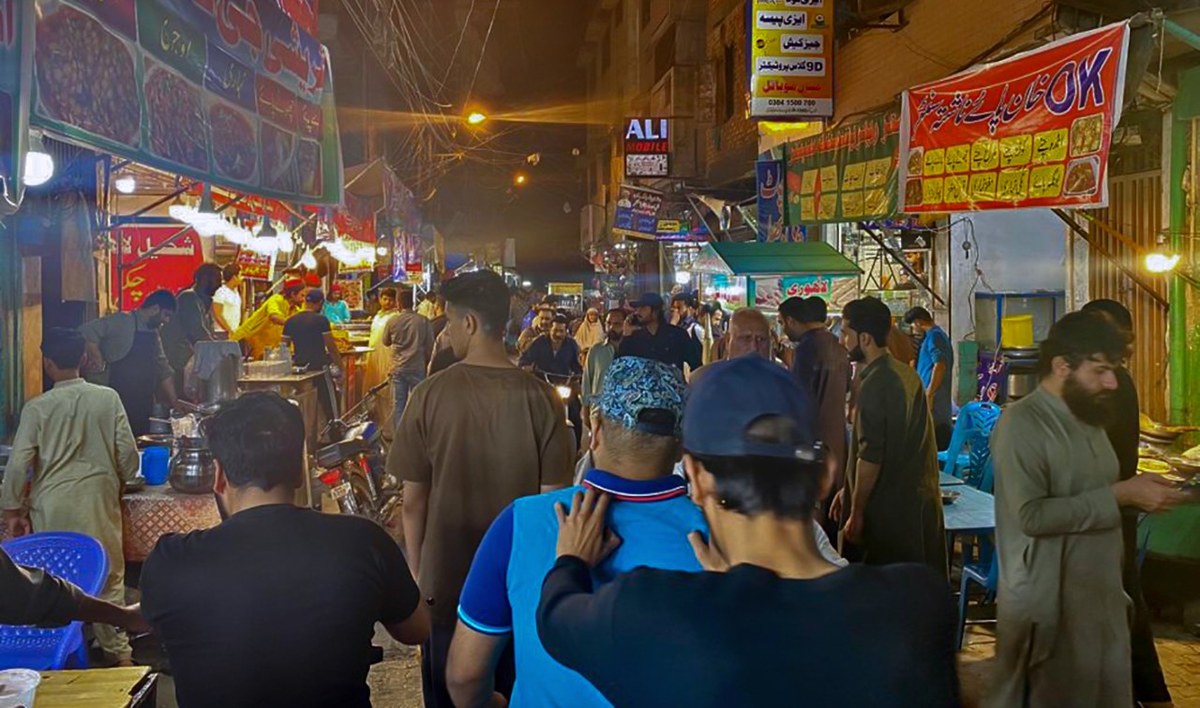
Crowds of people throng stalls in Kartapura street, an area famous for sahoor food, in Rawalpindi, Pakistan on April 27, 2022. (AN Photo)
Some visitors, like Saqib Zeeshan, a software engineer from Islamabad, have to Kartarpura street for the first time.
“We have heard a lot about Kartarpura street and came from Islamabad to experience this,” he said. “We’ve had a phenomenal experience here, the atmosphere is amazing, with very good food.”


